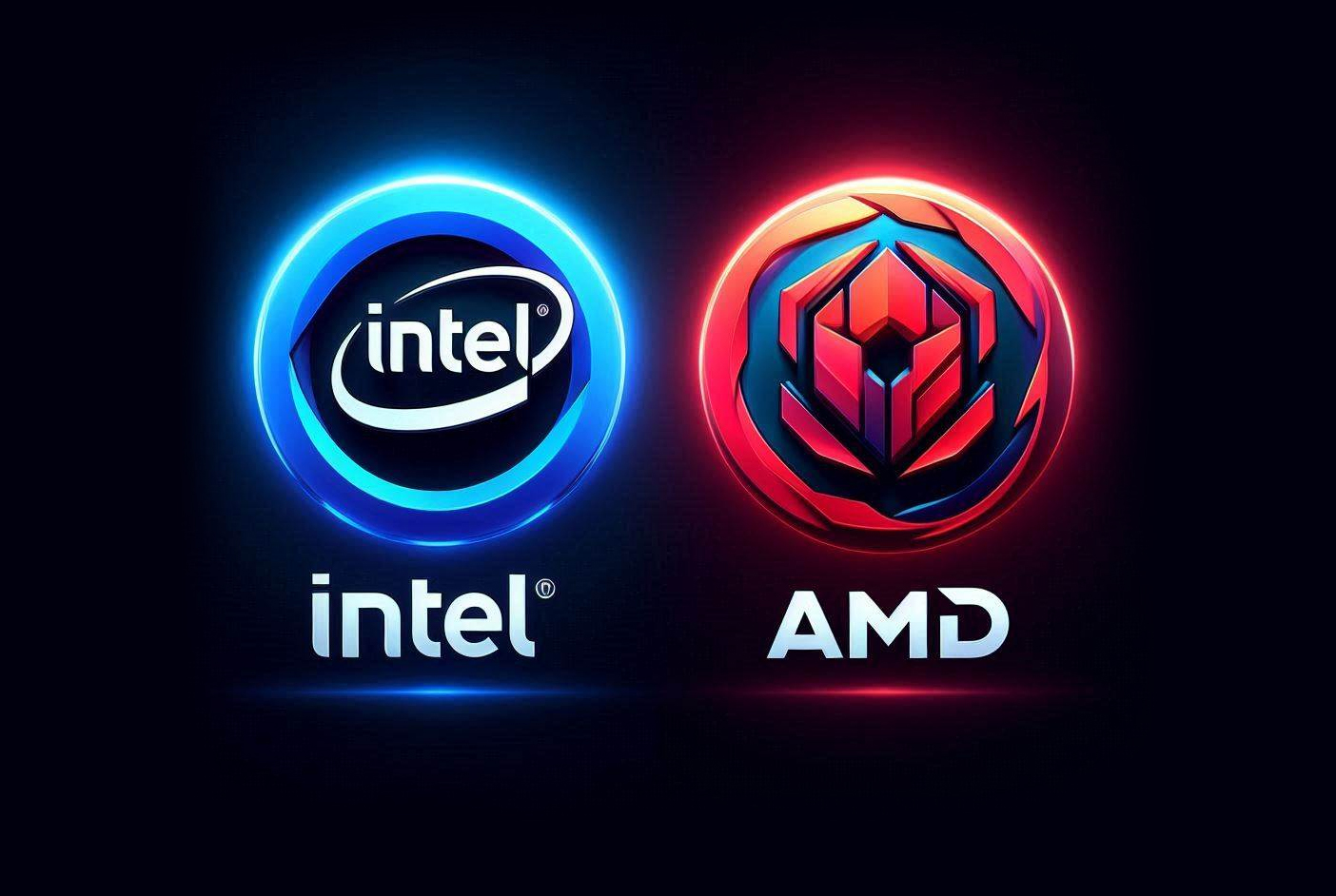Table of Contents
AMD vs Intel: Which Processor Reigns Supreme in 2024?
Choosing the right processor can make or break your computing experience, whether you’re gaming, creating content, or just browsing the web. In 2024, the battle between AMD and Intel continues to heat up, with both companies pushing the boundaries of technology to capture the crown. Let’s dive into the latest developments and see which processor reigns supreme this year.
History of AMD and Intel | AMD vs Intel
AMD’s Journey
AMD, or Advanced Micro Devices, has been a fierce competitor in the processor market for decades. Founded in 1969, AMD has continuously strived to innovate and offer competitive alternatives to Intel. The introduction of the Ryzen series in 2017 marked a significant turning point, putting AMD back in the game with high-performance, cost-effective CPUs.
Intel’s Evolution
Intel, established in 1968, has long been the dominant force in the CPU market. Known for its high-performance processors, Intel has set industry standards for decades. However, the landscape started to shift with AMD’s resurgence, prompting Intel to step up its game with new architectures and technologies.
Technological Innovations | AMD vs Intel
AMD’s Recent Advancements
In 2024, AMD continues to impress with its Zen 4 architecture, delivering improved performance and efficiency. The Ryzen 7000 series, built on a 5nm process, offers significant gains in multi-threading and gaming performance, making it a top choice for many users.
Intel’s Latest Technologies
Intel’s 13th Gen Alder Lake processors, featuring a hybrid architecture with a mix of performance and efficiency cores, have also made waves. The move to a 10nm Enhanced SuperFin process has allowed Intel to boost performance while maintaining energy efficiency.
Performance Comparison | AMD vs Intel
CPU Benchmarks
When it comes to raw performance, both AMD and Intel have their strengths. AMD’s Ryzen 9 7950X and Intel’s Core i9-13900K are neck and neck in many benchmarks, with slight variations depending on the specific task.
Gaming Performance
For gamers, the choice is tougher. AMD’s processors offer excellent multi-threading, which is great for gaming and streaming simultaneously. Intel, however, often has a slight edge in single-core performance, crucial for gaming.
Multi-threading Capabilities
In multi-threading, AMD traditionally has the upper hand, thanks to more cores and threads. This makes AMD processors particularly appealing for tasks like video editing and 3D rendering.
Power Efficiency | AMD vs Intel
AMD’s Power Consumption
AMD has made strides in power efficiency with its Ryzen 7000 series, offering high performance without a significant increase in power consumption. This balance is ideal for users who need robust performance without skyrocketing electricity bills.
Intel’s Power Efficiency
Intel’s Alder Lake processors also boast improved power efficiency, thanks to the hybrid architecture. The efficiency cores handle lighter tasks, reducing overall power consumption and heat output.
Price and Value
Cost Analysis of AMD Processors
AMD has built a reputation for offering great value for money. The Ryzen series continues this trend, providing high-end performance at competitive prices, making them a popular choice for budget-conscious buyers.
Cost Analysis of Intel Processors
Intel processors tend to be slightly more expensive, but they justify this with robust performance and cutting-edge technology. For those willing to pay a premium for top-tier performance, Intel remains a strong contender.
Value for Money
Overall, AMD often provides better value, especially for users who need strong multi-threading capabilities. Intel’s processors, while pricier, deliver exceptional single-core performance, appealing to gamers and professionals alike.
Market Share and Popularity | AMD vs Intel
Current Market Trends
As of 2024, the market is fairly evenly split between AMD and Intel, with each brand having a loyal customer base. AMD’s market share has grown significantly in recent years, but Intel remains a dominant force.
Consumer Preferences
Consumer preferences often boil down to specific needs. Gamers and those requiring single-core performance might lean towards Intel, while multi-taskers and professionals might prefer AMD for its superior multi-threading.
Overclocking Potential | AMD vs Intel
Overclocking AMD CPUs
AMD’s Ryzen processors are known for their overclocking potential, allowing users to squeeze out extra performance. The Ryzen Master software simplifies this process, making it accessible even to those new to overclocking.
Overclocking Intel CPUs
Intel processors also offer excellent overclocking capabilities. Tools like Intel’s Extreme Tuning Utility (XTU) make it easier to push CPUs beyond their factory limits, appealing to enthusiasts looking for maximum performance.
Compatibility and Motherboard Options | AMD vs Intel
AMD Compatibility
AMD’s commitment to the AM4 socket has made upgrades straightforward for users, providing flexibility and longevity. The new AM5 socket continues this tradition, supporting the latest technologies and processors.
Intel Compatibility
Intel’s frequent socket changes can be a double-edged sword. While it ensures the adoption of the latest technologies, it can also mean more frequent motherboard upgrades for users.
Future Prospects | AMD vs Intel
AMD’s Roadmap
AMD’s future looks promising, with plans to continue refining its Zen architecture and expanding its product lineup. Innovations in areas like AI and machine learning are expected to keep AMD competitive.
Intel’s Future Plans
Intel is focusing on its 14th Gen Meteor Lake processors, which promise even greater performance and efficiency. Investments in new fabrication technologies aim to reclaim and extend Intel’s lead in the CPU market.
Use Cases and Recommendations | AMD vs Intel
Best Choice for Gamers
For gamers, Intel might be the better choice in 2024 due to its superior single-core performance. However, AMD’s Ryzen 7000 series also provides an excellent gaming experience with strong multi-threading for streaming.
Best Choice for Content Creators
Content creators will likely prefer AMD, thanks to its superior multi-threading capabilities. Tasks like video editing, 3D rendering, and programming benefit from AMD’s higher core and thread counts.
Best Choice for General Users
For general users, both AMD and Intel offer robust options. It often comes down to budget and specific needs. AMD might provide better value, but Intel’s performance and efficiency are hard to overlook.
User Experience and Feedback | AMD vs Intel
AMD User Reviews
User reviews for AMD’s Ryzen processors are generally positive, praising their performance, value, and power efficiency. Many users appreciate the easy overclocking and future-proofing offered by AMD’s socket strategy.
Intel User Reviews
Intel’s processors also receive high marks, particularly for their gaming performance and reliability. Users often highlight the superior single-core performance and robust build quality.
Environmental Impact | AMD vs Intel
Sustainability of AMD
AMD has made significant efforts to reduce its environmental footprint, including initiatives to lower power consumption and improve manufacturing efficiency.
Intel’s Eco-Friendly Initiatives
Intel is also committed to sustainability, with goals to achieve net positive water use and significantly reduce greenhouse gas emissions. These initiatives make Intel a responsible choice for environmentally conscious consumers.
Support and Warranty | AMD vs Intel
AMD’s Customer Service
AMD offers solid customer support, with responsive service and comprehensive warranties. This reliability helps build consumer trust and loyalty.
Intel’s Customer Support
Intel’s customer service is also highly regarded, providing extensive resources and support options. Their warranty programs are robust, offering peace of mind to buyers.
Conclusion | AMD vs Intel
In the ongoing battle between AMD and Intel, 2024 doesn’t present a clear winner. Both brands have their strengths, and the best choice depends on individual needs and preferences. AMD offers excellent multi-threading and value, while Intel shines in single-core performance and gaming. As technology continues to evolve, both companies are poised to push the boundaries of what’s possible, ensuring that consumers have access to cutting-edge options no matter their choice.
FAQs | AMD vs Intel
What are main differences between AMD and Intel processors?
AMD processors typically offer better multi-threading performance and value, while Intel processors excel in single-core performance and gaming.
Which processor is better for gaming in 2024 when we are talking about AMD vs Intel?
Intel’s 13th Gen Alder Lake processors generally provide superior gaming performance due to higher single-core speeds.
How do AMD and Intel compare in terms of power efficiency?
Both have made strides in power efficiency, but AMD’s latest Ryzen 7000 series and Intel’s Alder Lake processors both offer competitive energy-saving features.
Are AMD processors more cost-effective than Intel?
AMD processors often provide better value for money, especially in multi-threaded tasks, though Intel’s processors are worth the premium for high-performance needs.
When choosing between AMD and Intel What should I consider ?
Consider your primary use case (gaming, content creation, general use), budget, and preference for performance metrics like single-core vs. multi-core performance.
Check out our post about Choosing Between SSD and HDD: The Crucial Decision That Could Transform Your Computing Experience











